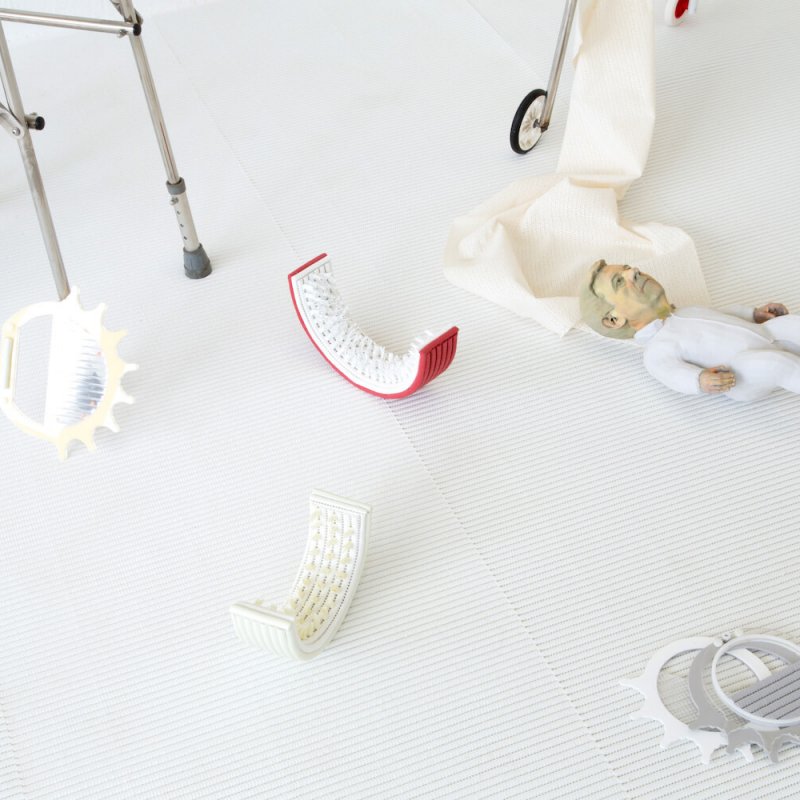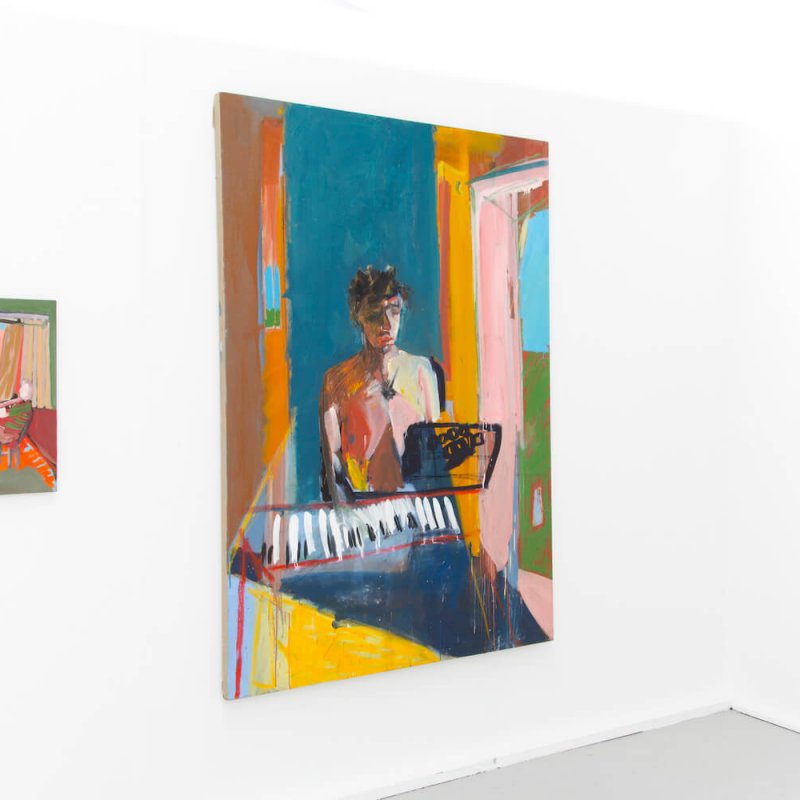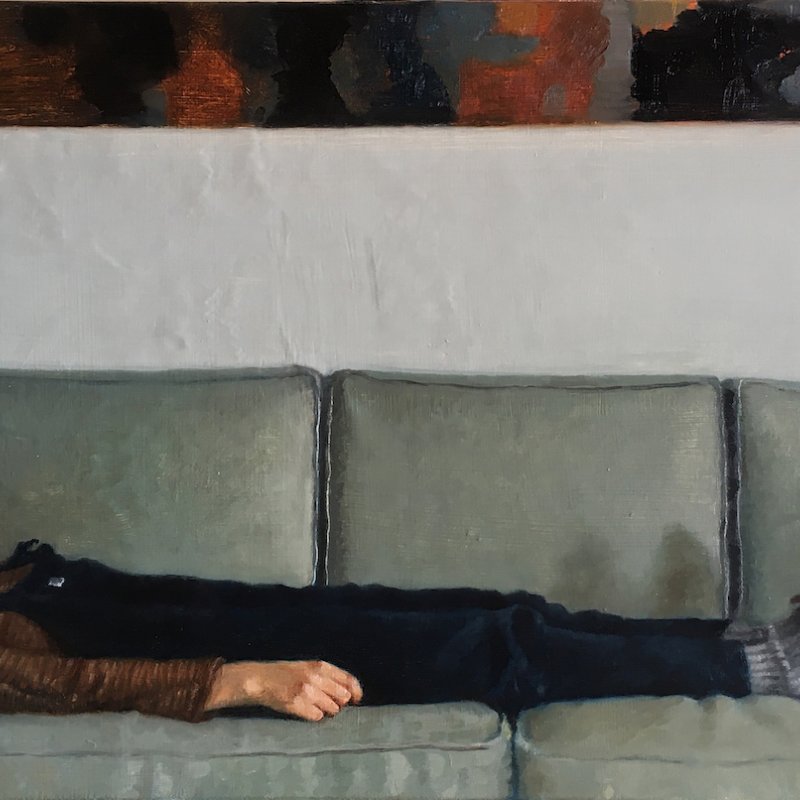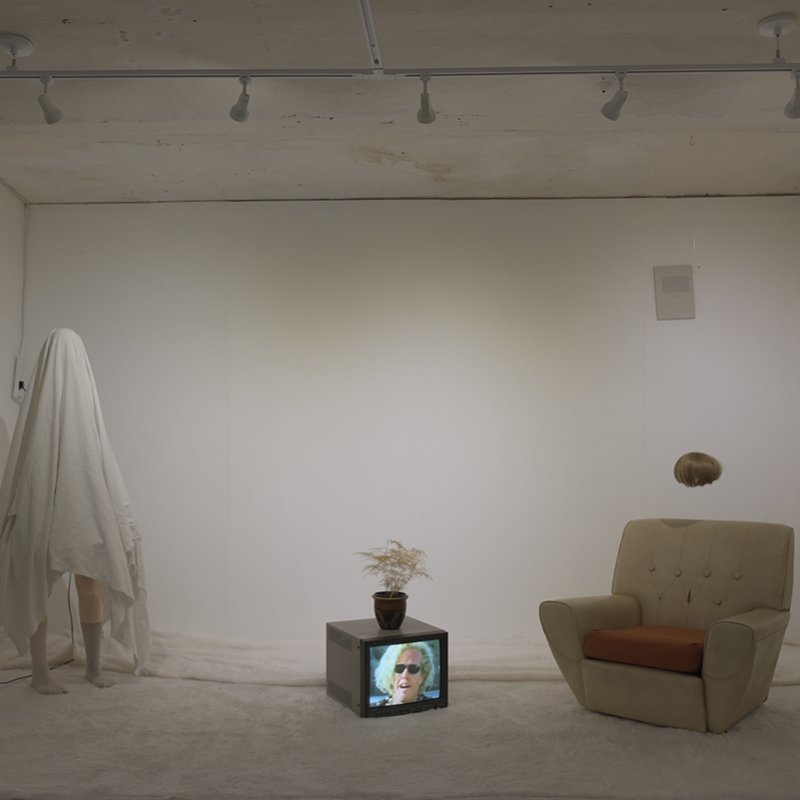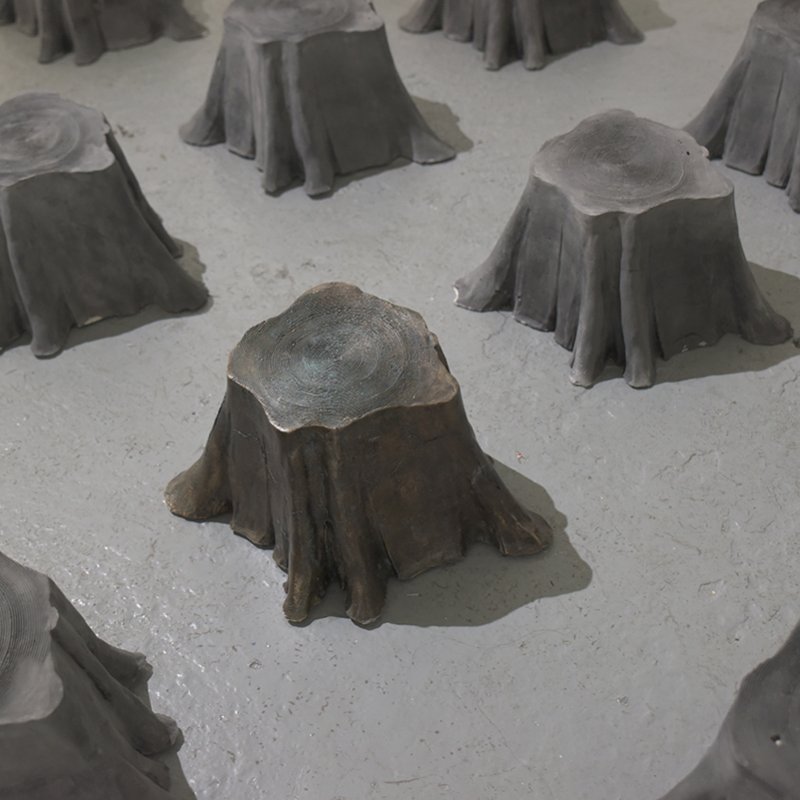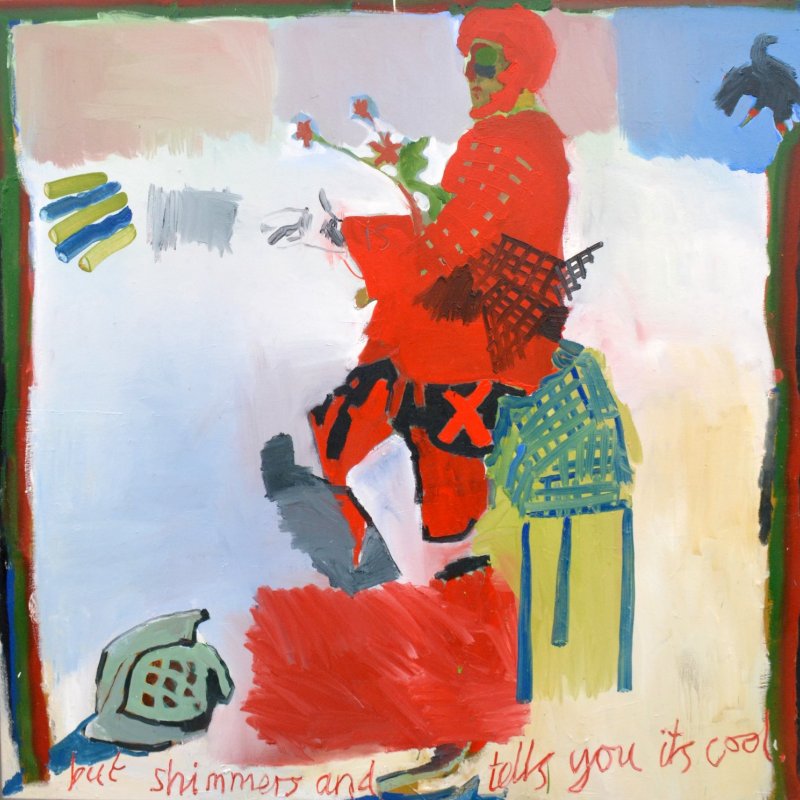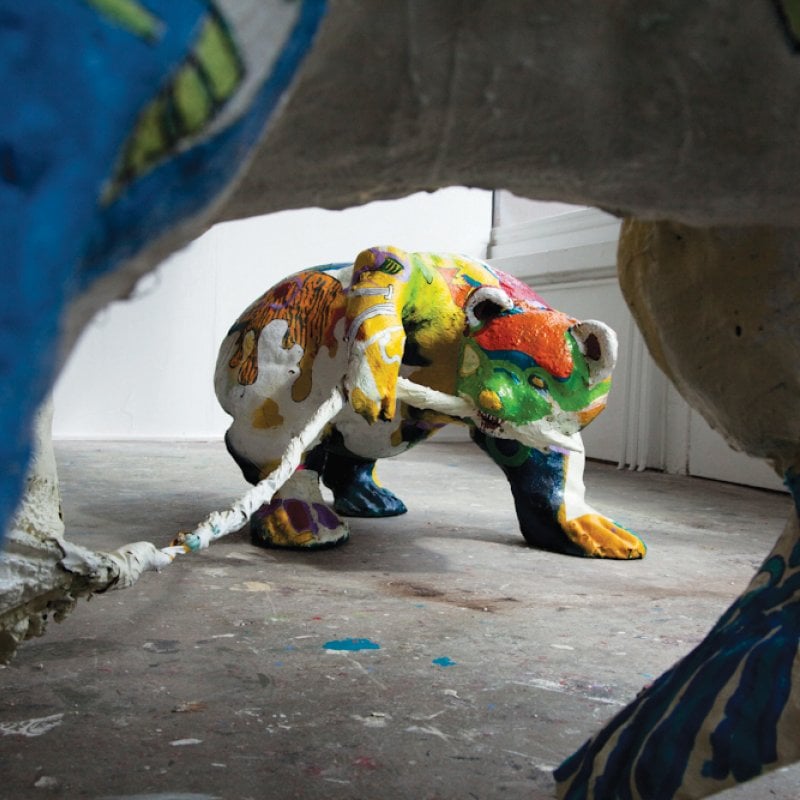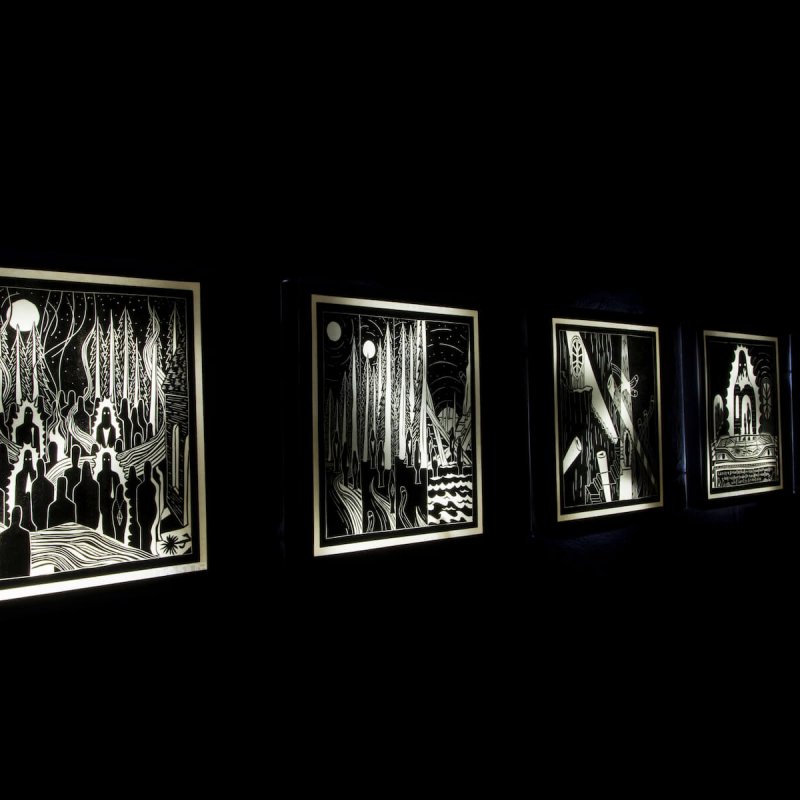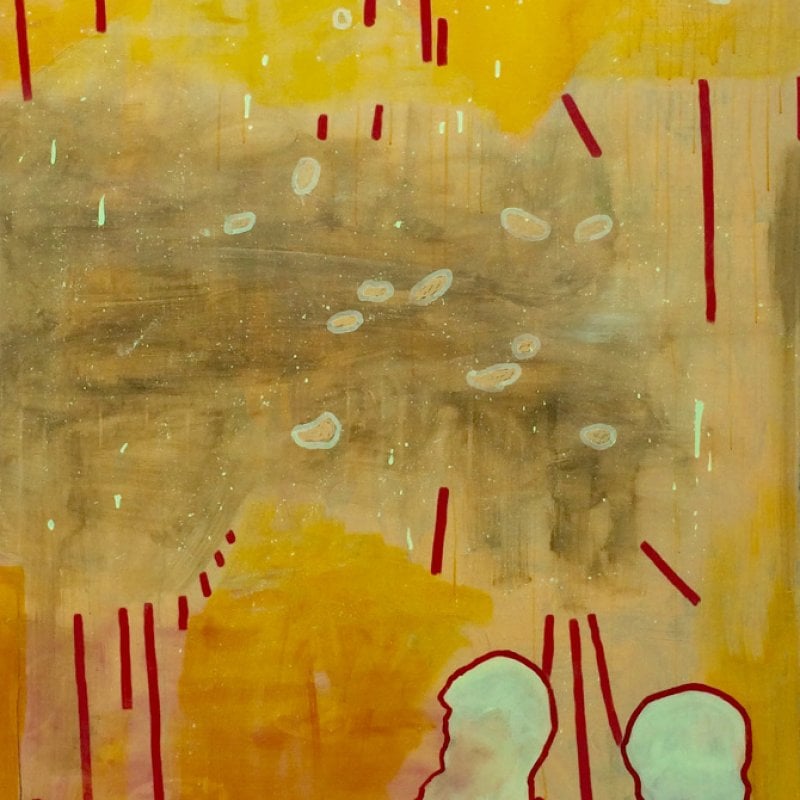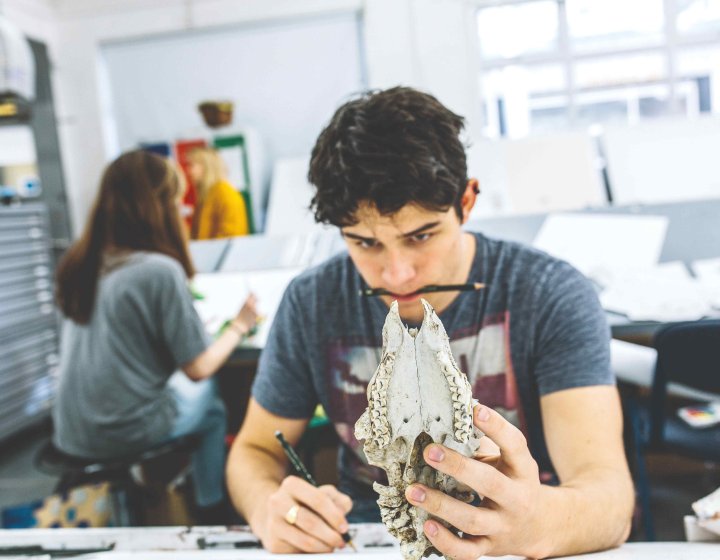

Fine Art BA(Hons)
Harness Falmouth’s renowned fine art expertise, which champions critical exploration.
Course overview
Realise your artistic vision and ambition on our renowned Fine Art degree, which champions curiosity and encourages critical exploration of historical and contemporary art practices, cultural issues, contexts and debates. With access to studio space and facilities including 3D, printmaking and time-based media workshops, you’ll evolve your own practice through a rich variety of mediums. By graduation you’ll have an industry-ready portfolio and the ability to effectively present your work to the world, building the foundations for an enduring career.
You will:
- Work in a fine art studio space from day one, with access to excellent facilities including 3D, printmaking and time-based media workshops
- Collaborate with industry partners such as Newlyn Art Gallery and Tate St Ives
- Develop professional practice skills, learning to identify opportunities, take initiative and sustain a viable long-term career in the arts and beyond
- Evolve your fine art practice through opportunities such as field recordings, voice laboratories, self-publishing projects, specialist workshops, guest lectures and performances
- Collaborate with peers and staff to produce group exhibitions and an online arts festival
- Build an industry-ready fine art portfolio
Lead image: Edward Scott.
Course details
In the first year of your Fine Art degree, you'll join technical workshops and inductions to kick-start approaches to artistic practice. With a focus on co-creation, you'll collaborate with your peers to develop a range of ways to think about, self-initiate, and develop your practice. You'll also investigate contemporary and historical art contexts, developments and debates. At the end of the year, you'll go on to develop and deliver a group exhibition.
Modules
Press Play
With a focus on co-creation and collaborative peer learning, you'll develop a range of ways to think about, self-initiate, and develop your artistic practice. You'll undertake technical workshops and inductions and explore ambitious ideas – testing boundaries, taking risks, experimenting and making meaning. You'll also be introduced to a range of contemporary and historical art practices, cultural issues, debates, and contexts.
Practice in Context 1
In this module, you'll benefit from the combined expertise of both our Fine Art and Drawing courses. Through lectures and group discussions surrounding contemporary and historical art contexts, developments and debates, you'll develop a self-reflective approach to studio practice.
You'll also be introduced to academic writing and research conventions. Through this, you'll develop your own critical analysis skills and learn to communicate your ideas professionally and effectively.
Initiating Practice
In this module, you'll strengthen your understanding of what it means to have and maintain an independent artistic practice. You'll explore methods for practice-based research to identify connections between sources, underpin your practice with rich source material and develop conceptual themes for your work. You'll also look at how your practice fits within the professional industry and construct a collaborative group exhibition – exploring different modes of display and audience experience.
Practice in Context 2
This is part two of the Practice in Context module, where you'll have access to expertise across Falmouth School of Art. You'll be introduced to a range of themes and trends that have shaped contemporary artistic practices, such as socially engaged practices and recent philosophical shifts in the role and value of artistic production. You'll also engage with a greater range of academic source material and strategies for analysing, researching, and writing about art.
In your second year, you’ll expand your horizons of what art practice is and can be, and how this translates to professional contexts. You’ll further your understanding of research by exploring the relationships between sources, methodologies, themes, and ideas in support of your evolving practice. You’ll also continue to develop the academic and cognitive skills required to develop thoughtful and critical practice, in both visual and written forms.
At the end of the year, you’ll work in teams to produce a public-facing arts event. To do this, you’ll utilise vital professional practice skills including collaboration, team working, negotiation, persuasion, liaison and project management.
Modules
Situating Practice: Studio
In this module, you’ll establish themes in your practice and gain an understanding of how your work interacts with a range of professional and theoretical contexts. Working in both the studio and technical workshops, you’ll develop a new body of work focusing on process, material investigation and technical experimentation.
You’ll also explore how to identify themes and contexts that emerge from thinking through making and how you ‘tell the story’ of your practice and research, situated in real-world contexts.
Situating Practice: Art Discourses
In this module, you’ll be introduced to discussions on a range of diverse themes in contemporary art. You’ll look at the histories that have given rise to certain works and the ideas informing them, questioning the choices that artists make and how artists orientate themselves on the constantly shifting grounds of contemporary art.
Testing Ground: Art Encounters
Here, you’ll begin generating a portfolio of research. You’ll be introduced to core research methodologies and contemporary critical research practices. You’ll also learn and then apply methods for planning and organising your research. Additionally, you’ll explore a range of strategies for undertaking critical reading, and experimental, creative modes of writing.
Testing Ground: Collaboration
Working in exhibition planning groups, you’ll identify and work towards a live context for your current practice. Each group will contribute to planning and preparing a public-facing arts festival and the group curation of your practice.
Testing Ground: Studio
In this module, you’ll challenge and test established conventions within your practice. The emphasis will be on experimentation and risk through the practical business of making. Through a combination of seminars, tutorials and peer review you will articulate and receive critical feedback on your work. You will curate a body of work into an organised portfolio with a supporting artist statement.
You can choose to take an optional professional placement after your second year on a three-year programme, or after your third year if you’re studying for a degree with an Integrated Foundation Year.
You’ll be responsible for finding your own placement, with support from the Employability team.
Choosing this option will enhance your industry experience and skills while studying.
How you’ll study during your professional placement
You’ll spend time working in a professional context, as part of a business or organisation. This can be in one role, or up to three, and must be for a minimum of 24 weeks.
You’ll develop in-demand workplace skills, deepen your insight into industry and grow your network of contacts, all of which could help you get ahead in your career after graduation.
Throughout this year, you’ll develop a portfolio of work that includes critical self-reflection on what has been learned from the experience. You’ll be required to evidence your experiences, the skills you’ve learned and your professional growth.
In the third year of your Fine Art degree, you’ll work to establish a professional level of agency over your own creative practice. You'll complete an extensive research project that addresses the question of ‘research as practice’; providing an opportunity to scope the embedded methodologies and theoretical frameworks of your practice. You’ll then mobilise this research to produce a professional, public-facing final exhibition.
Throughout the year, you’ll be supported to develop your professional practice skills, expand your industry and research networks, and find opportunities to test your practice in the real world.
Modules
Practice as Research
Through challenge and exploration, in this module you’ll begin to understand and mobilise research as an integral aspect of practice, culminating in a set of outputs distinctive to your own critical concerns.
Entrepreneurial Practices: Agencies & Audiences
In this module, you’ll build an entrepreneurial skillset by engaging with public contexts as a dynamic material within your practice. You’ll also be required to identify the relevant audiences, platforms and tools for the dissemination of your practice and research in relation to your career goals.
Realisation
This module is a culmination of the skills, knowledge and understanding you have accumulated over three years of study. You’ll be expected to challenge and finesse your practice, with your degree show exhibition showcasing your accomplishments to a wider audience. You’ll also be required to liaise with your cohort to collectively organise, curate and promote an exciting exhibition.
Sustaining Practice
In this module, you’ll consider things like curation, the catalogue, planning and delivering a show – and what to carry forward beyond university. You’ll be required to thoroughly document the planning, investigation and development of your chosen project, reflect on and evaluate your own professional development and initiate industry connections and explore opportunities for your career.
Why study an Integrated Foundation Year route?
If you’re taking on a new subject that you haven’t studied in depth before, have been out of education for a while or have a non-standard educational background then an Integrated Foundation Year degree may be the right choice for you. It is a four-year degree with an Integrated Foundation Year to start, which allows you to explore the primary elements of your subject before progressing on to the remaining three years of the BA(Hons) degree.
What you'll learn
If you choose this pathway, you'll study five core modules in your Foundation year. These are all designed to help you explore the foundational elements of your subject. You'll gain relevant technical skills, learn to experiment and take risks, develop an understanding of professional practice, have opportunities to work across disciplines and collaborate with other students on live project briefs.
Modules
Explore
You'll begin your foundation year by working collaboratively with others to explore themes of the future. You'll take risks, experiment through play and be supported to break through barriers.
Technique
You'll take subject-specific workshops and develop essential technical and practical skills in your area of study. You'll also enhance your analytical and organisational abilities.
Apply
You'll work with your peer group to think beyond discipline by addressing a societal or global issue. You'll then showcase your work to your peers and deliver an accompanying evaluation of your process.
Industry
You'll enhance your creative and practical skills in your subject specialism by responding to typical industry briefs, underpinned by focused research and experiments. You'll also gain industry insights through guest lectures and workshops.
Launch
You'll develop your unique identity in your specialism through the production of a self-initiated body of work. Your final project will be the bridge to your next year, fully supported by evaluative reviews and critical analysis of the work you have created.
After the Foundation year, you progress into Year One of the full three-year degree, equipped with a deeper knowledge of your subject, a clear understanding of your strengths, and develop a practical and technical skillset and the confidence to excel in your chosen subject.
If you apply for and enrol onto a degree with an Integrated Foundation Year, you’ll have the option to switch onto a five-year version including a placement year. That means you’ll complete the first three years of your course before completing a placement in industry in your fourth year and returning to Falmouth for the fifth year of your programme.

Lynette Yiadom-Boakye's 2022 exhibition at the Tate Britain, Fly in the League of the Night, housed around 70 works created from 2003 to the present day.
Alumna exhibited at Tate BritainAs part of our process of continuous improvement, we routinely review course content to ensure that all our students benefit from a high-quality and rewarding academic experience. As such, there may be some changes made to your course which are not immediately reflected in the content displayed on our website. Any students affected will be informed of any changes made directly.
From module information to course aims and assessment criteria, discover the full course details:
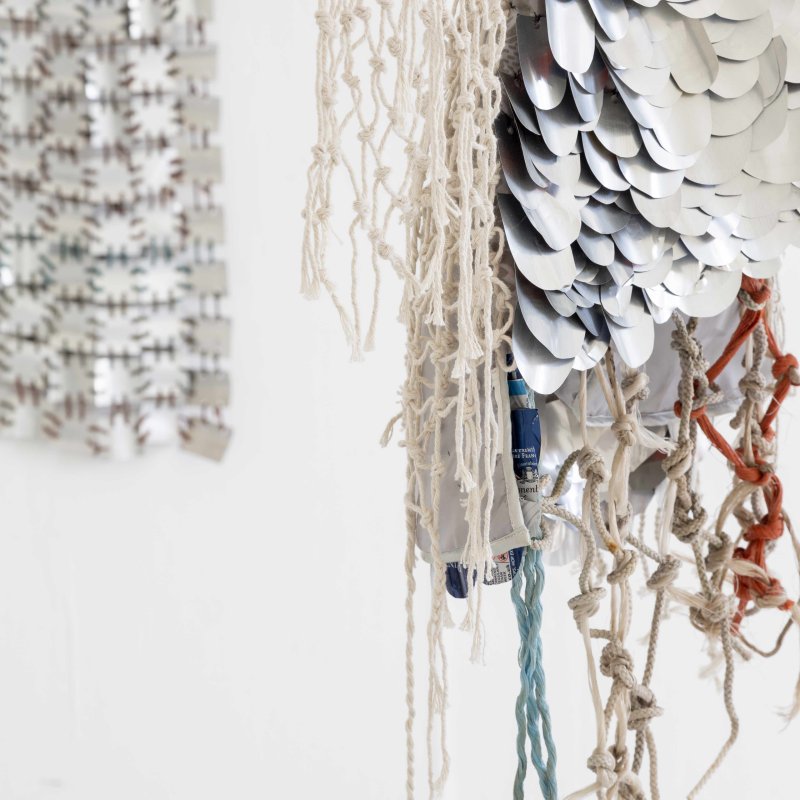
Work by Emily Spry
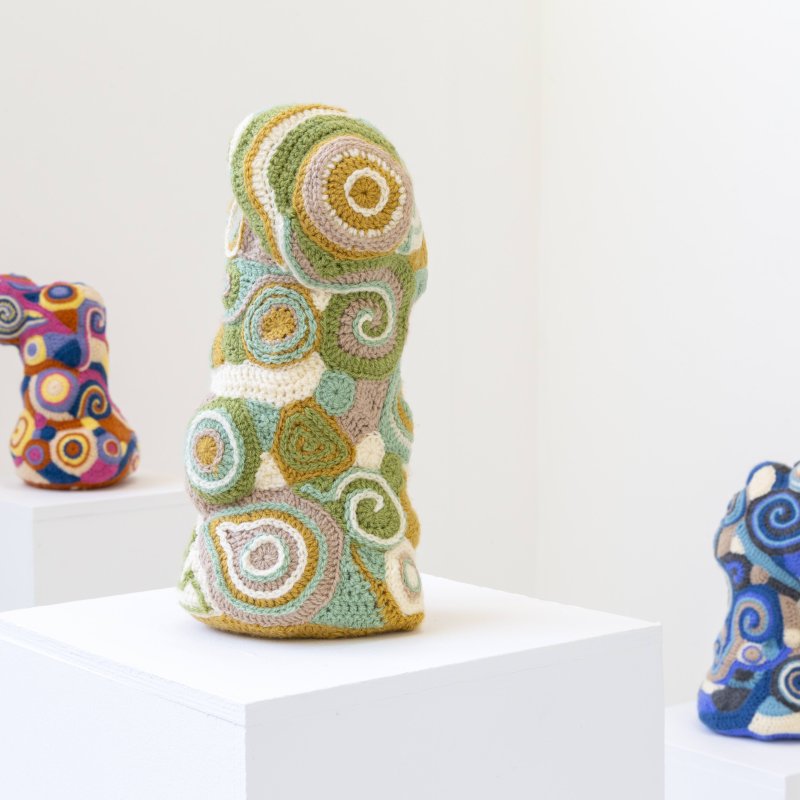
Work by Layla Knox

"I love the course because of the studio environment and overall attitude of students and tutors being so positive."
Jessie Hart, current student

"I was drawn to the campus; the print room was incredible, and I loved how open the Fine Art course structure was."
Anna Calleja, graduate
Stories from our community
Explore student projects, graduate successes, staff news and industry insights
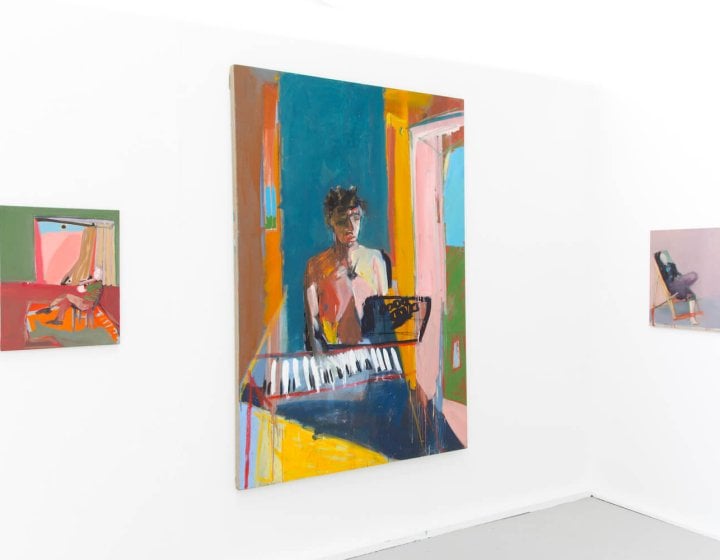
Why I chose to study Fine Art at Falmouth Uni
02 May 2024
After finishing school, I was certainly overwhelmed by all of my choices for what I could do going f...

Fine Art graduate Ellie Brown has her work featured in upcoming major film
27 February 2025
Ellie Brown graduated from Falmouth’s Fine Art BA(Hons) course in 2020, and has since pursued ston...

Aimee Shardlow: Fine Art Graduate starts her own business
09 December 2024
Fine Art Graduate Aimee Shardlow tells us about her experience as an independent artist living near ...

Anna at Palazzo Monti, 2024.
Fine Art graduate joins The Great Women Artists Residency in Italy
21 November 2024
Maltese artist Anna Calleja’s career is endlessly inspiring. Since graduating from Fine Art BA(Hon...

Still from Ken Nwadiogbu's workshop
Falmouth artists take part in creative projects by mental health charity Hospital Rooms
02 July 2024
Artists from our Falmouth School of Art (FSA) are involved in the work of Hospital Rooms – a chari...
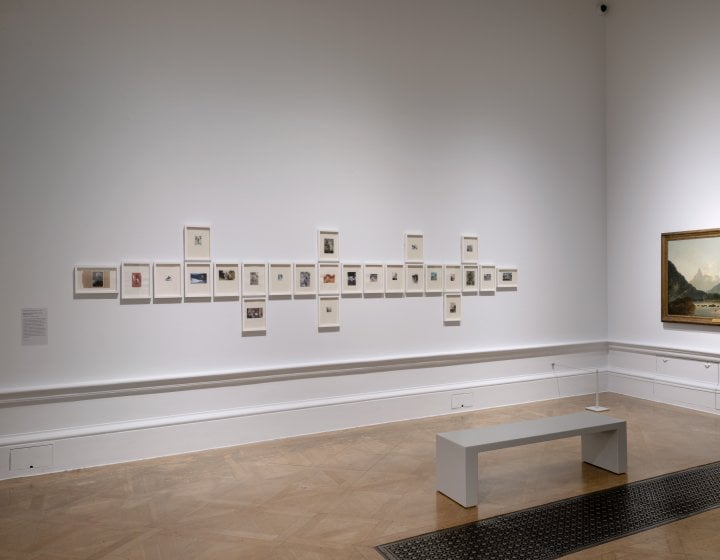
Mohini Chandra, 'Imaginary Edens/Photos of my Father' in 'Entangled Pasts, 1768-now', Royal Academy, London, 2024
Falmouth artists feature in Royal Academy of Arts exhibition on art, colonialism and change
24 April 2024
Works by esteemed Falmouth alumnus and Fellow Hew Locke OBE and Fine Art MA (Online) Module Leader D...
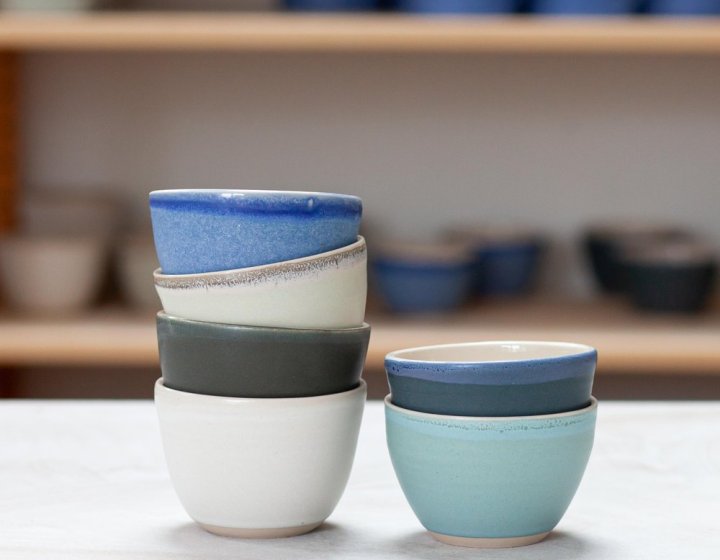
Meet EOT Ceramics owner Emily Tapp
10 November 2023
Explore graduate business EOT Ceramics.
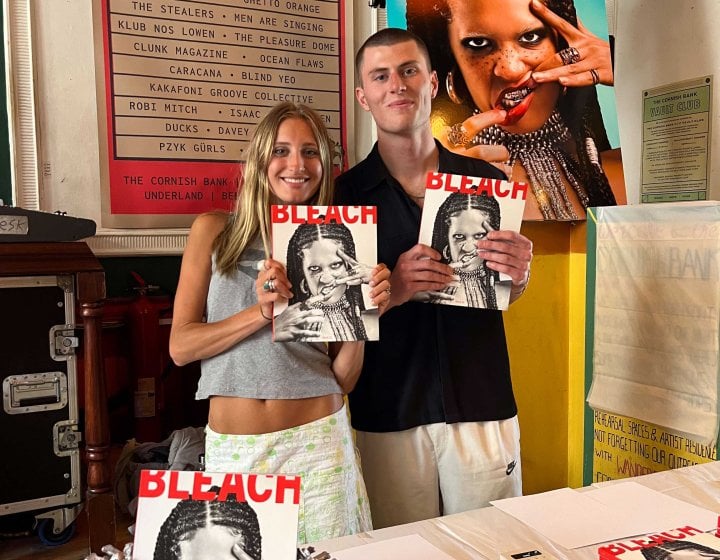
Monty and Alex at the Bleach Magazine launch at Cornish Bank in Falmouth.
Falmouth duo launch dynamic new publication BLEACH Magazine
27 July 2023
With the first issue selling out in less than a month, BLEACH Magazine is clearly onto something. Co...
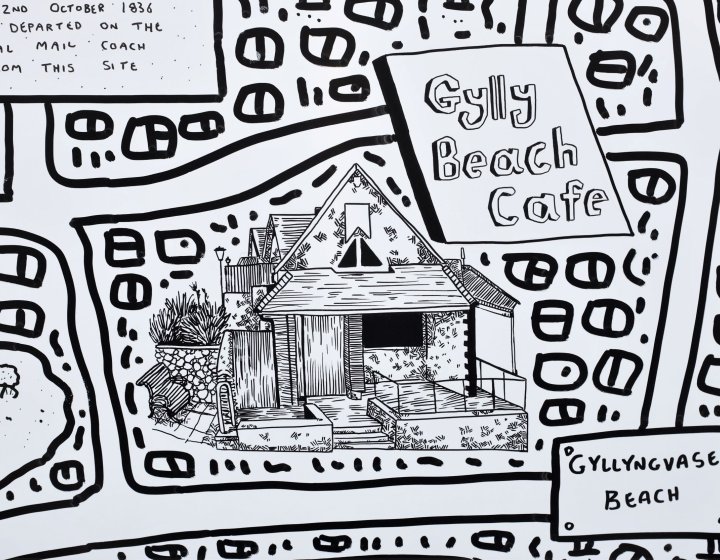
Students create mural with Dave Draws for Red Bull Doodle Art
21 March 2023
Students joined forces with Red Bull and celebrated ‘doodling muralist’ Dave Draws to create a c...
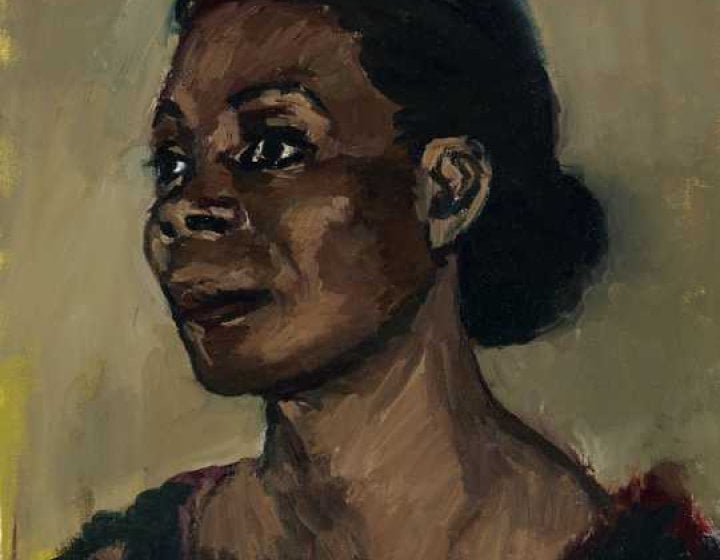
Falmouth alumna exhibiting at Tate Britain
15 November 2022
Falmouth Fine Art alumna Lynette Yiadom-Boakye is exhibiting at the Tate Britain in November 2022.
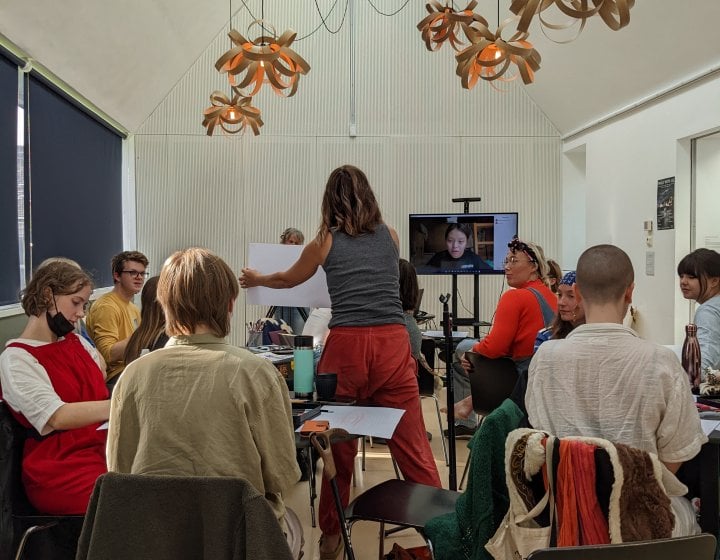
Peer to Peer: UK/HK 2022 – Students cross continents in the name of collaboration
07 November 2022
Falmouth’s BA Fine Art students have concluded the Peer to Peer: UK/HK 2022 Symposium; a festival ...
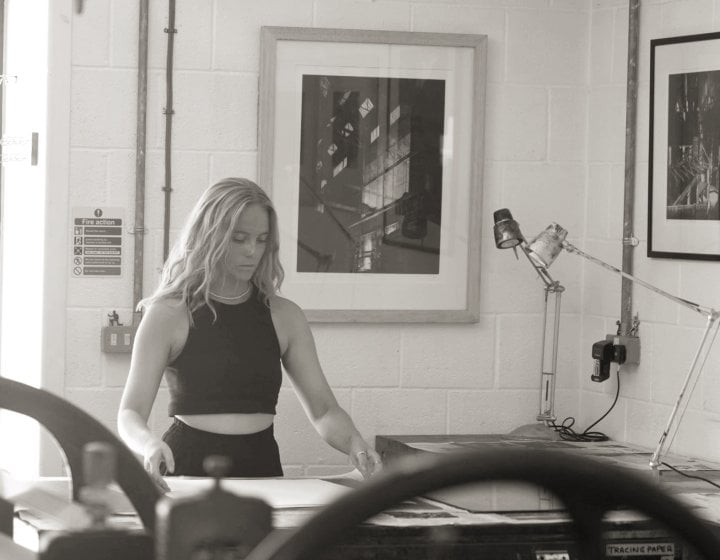
Graduate spotlight: Cornwall-based printmaker highlights the importance of resilience
05 October 2022
Since graduating from Fine Art BA(Hons) in 2021, Neve Clarke has worked hard to pursue a career in p...
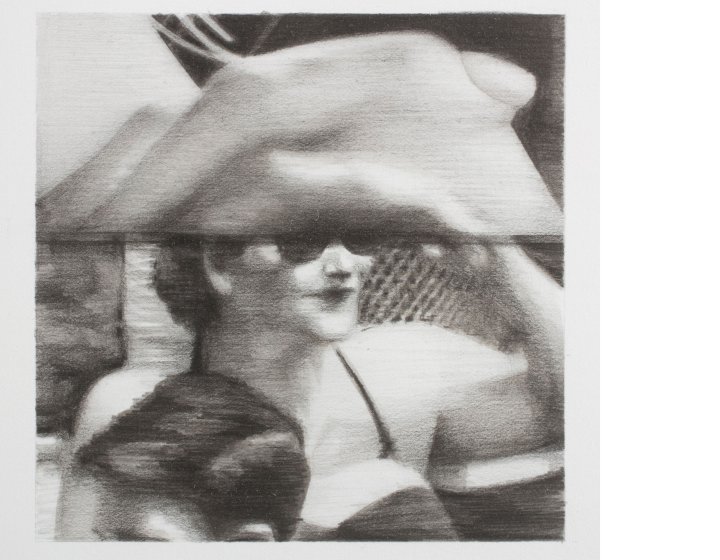
Trinity Buoy Wharf Drawing Prize 2022: Susannah Douglas' entry
Falmouth alumni shortlisted for the Trinity Buoy Wharf Drawing Prize 2022
27 September 2022
Three Falmouth graduates have been shortlisted for this year’s Trinity Buoy Wharf Drawing Prize an...
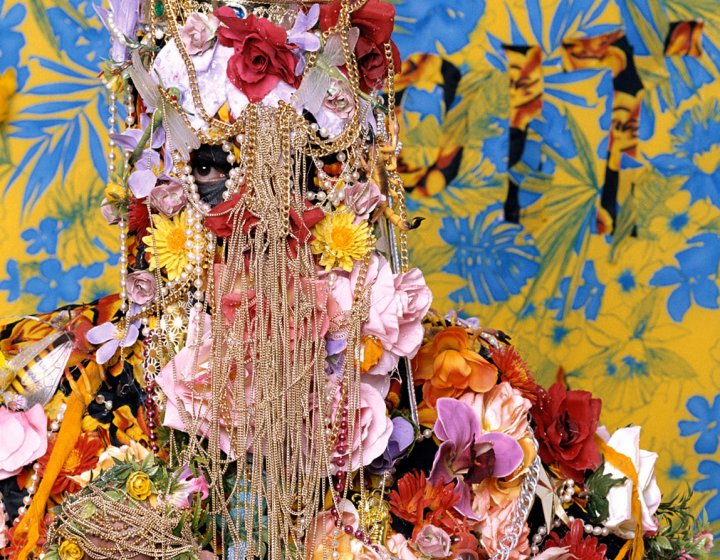
Alumnus Hew Locke is selected for The Met's Facade Commission
03 May 2022
Esteemed Falmouth alumnus Hew Locke has been announced as an artist for The Met Museum’s 2022 Faca...
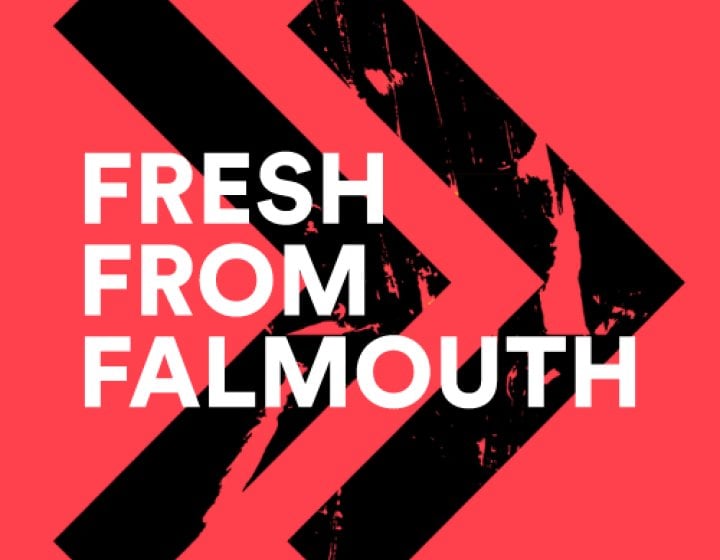
Fresh From Falmouth: March Edition
30 March 2022
After a brief hiatus, Fresh From Falmouth returns with even more exciting stories from our wonderful...
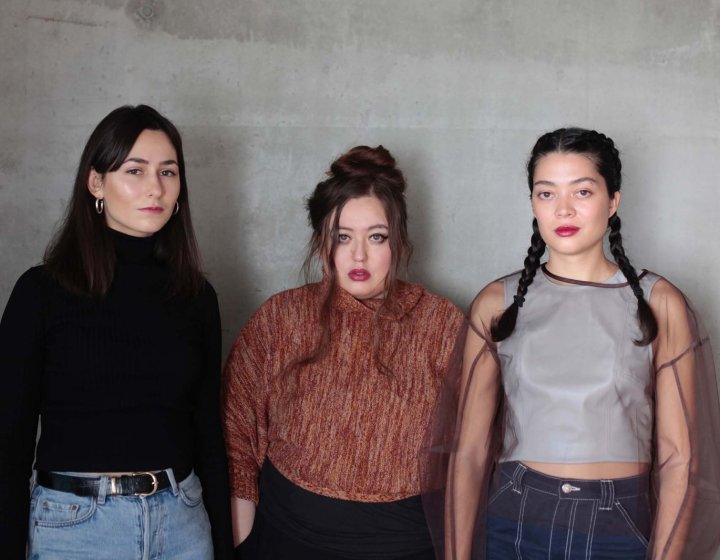
Fine Art graduates awarded €100,000 prize from Chanel
16 December 2021
Artist collective Keiken, made up of three Fine Art graduates, has been awarded the Chanel Next Priz...
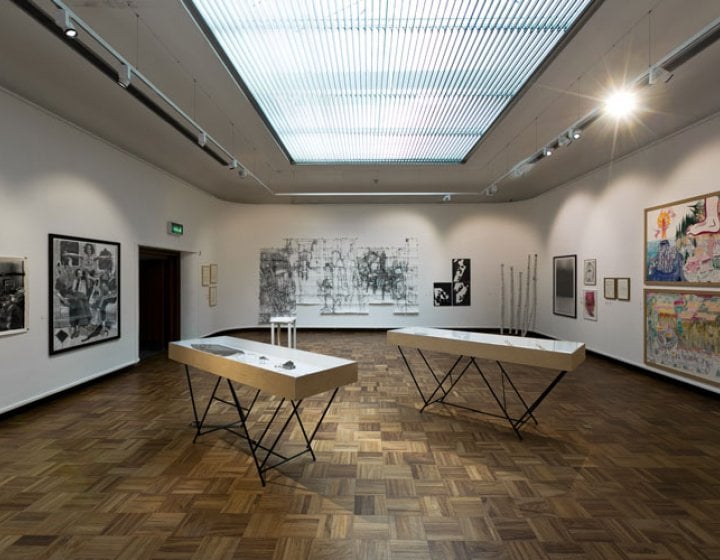
Falmouth graduates compete for a share of £27,000 at prestigious Drawing Award
22 October 2021
The Falmouth School of Art is celebrating a double success at the 2021 Trinity Buoy Wharf Drawing Pr...
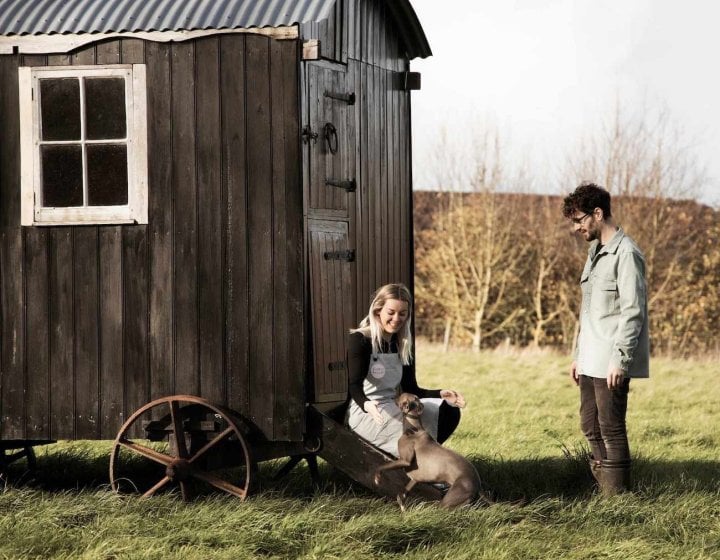
Forest & Clay: Small business flourishes in the hands of Falmouth graduates
02 July 2021
Fine Art graduate Dan Bethell and Fashion Photography graduate Anna Burnett have created Forest &...
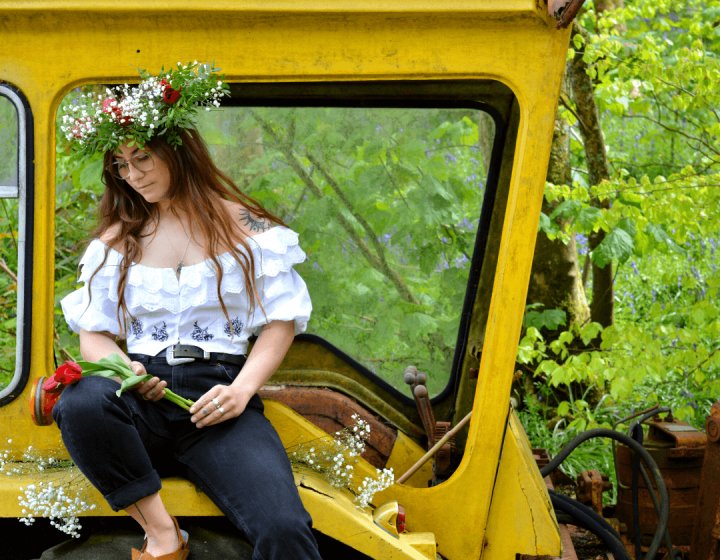
Waste not, want not: Graduate business launches sustainable clothing line
20 May 2021
Since her time at Falmouth, Fine Art graduate Lucy Whittaker has been nurturing a new sustainable fa...
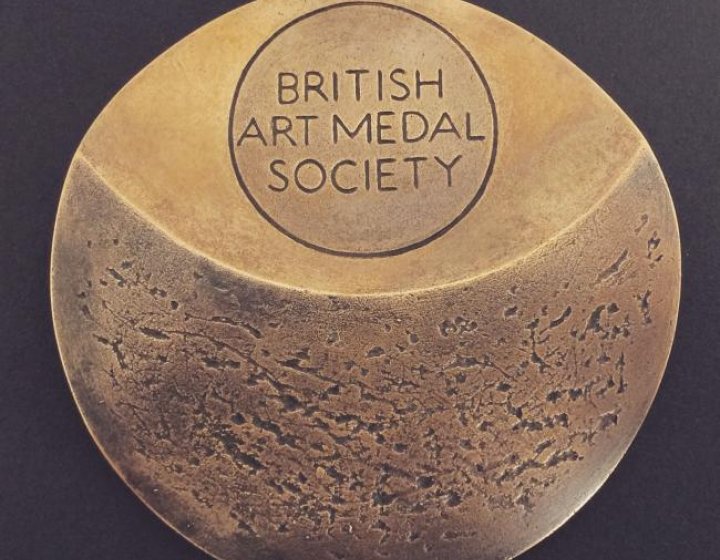
Fine Art students win big at the Student Medal Project
23 April 2021
Falmouth Fine Art BA (Hons) students have scooped an impressive h...
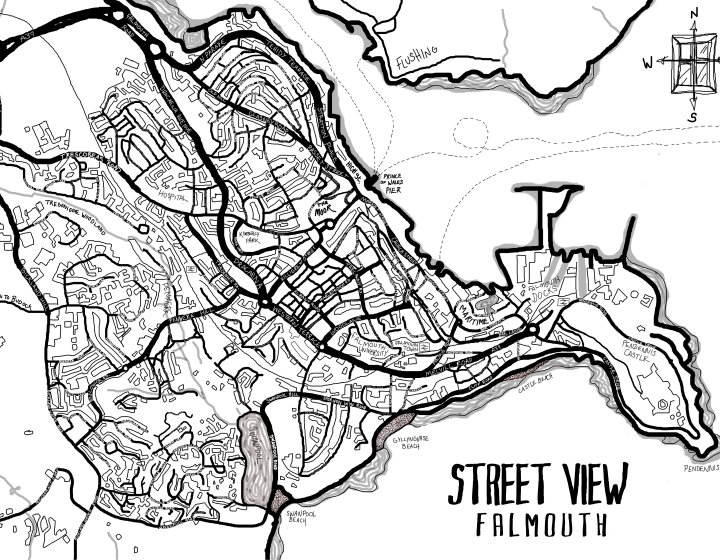
Fine Art students launch community project
23 February 2021
Fine Art student Lily Peach-Forster has instigated a new community arts project, Street View Falmout...
How you'll learn & be assessed
This Fine Art degree is constructed around the studio. You'll learn through individual tutorials, group discussions, critiques and technical workshops, while leading your own efforts in exhibitions and presentations.
Beginning with introductory studio-based exercises and media workshops, you'll take more and more responsibility for self-directed study as you learn and present work in public exhibitions.
At Falmouth, we use a 'digitally enhanced learning & teaching' approach. Your experience will always be predominantly in-person, including seminars, tutorials and studio teaching, with some, more targeted elements, being online either live (synchronous) or pre-recorded (asynchronous). You can read more here.
You'll be assessed with practical exams and coursework.
Assessment methods
- Foundation year assessments are 100% coursework based
- Practice-based modules will be assessed on the presentation of visual work, including preparatory work
- Critical studies modules will be assessed on written assignments
- In the final year you’ll be assessed on your dissertation and your studio-based module - culminating in an exhibition of your final-year work
Facilities
- Studio space.
- Dedicated workshops for 3D and bronze casting foundry, printmaking, paint preparation, laser cutting and rapid prototyping.
- Digital imaging facilities.
- Video and photography facilities.
- Performance and sound facilities.
- 140,000 books.
- 17,000 DVD/video titles.
- Over 400 journal titles.
- Radio archives, slides, pictures, maps and archive collections.
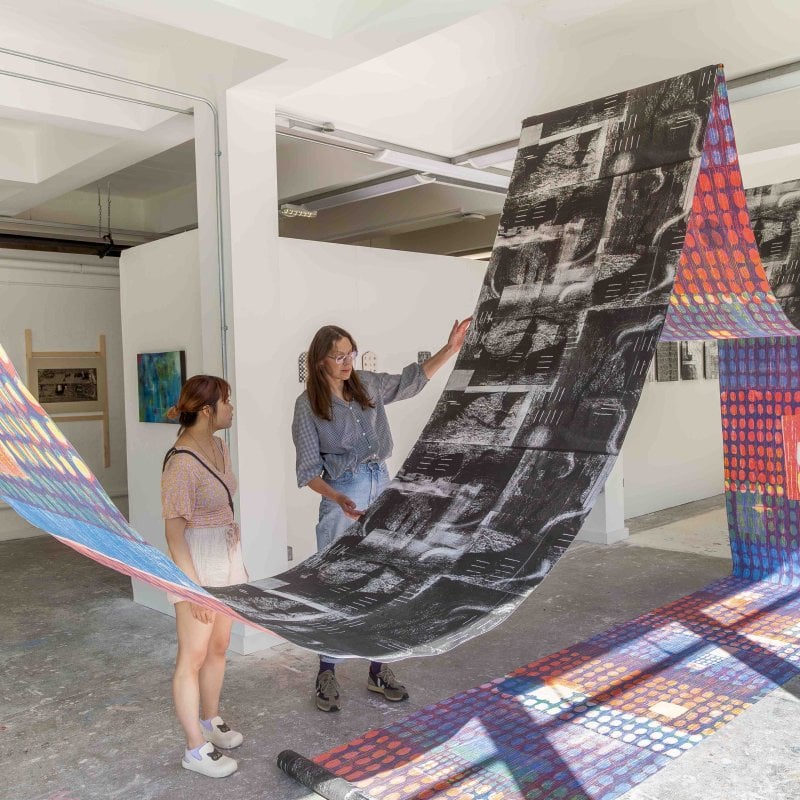
Work by Deborah Bunce
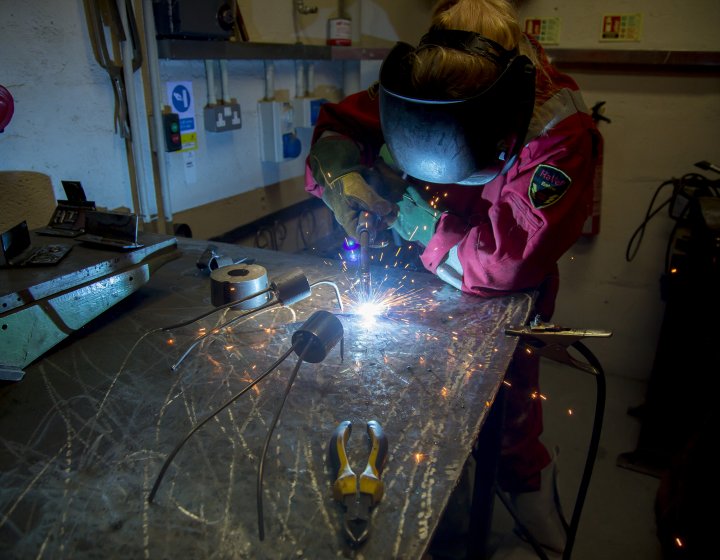
Art & Design Facilities
Primarily located at the Falmouth Campus in a subtropical garden, our studios and workshop facilitie...
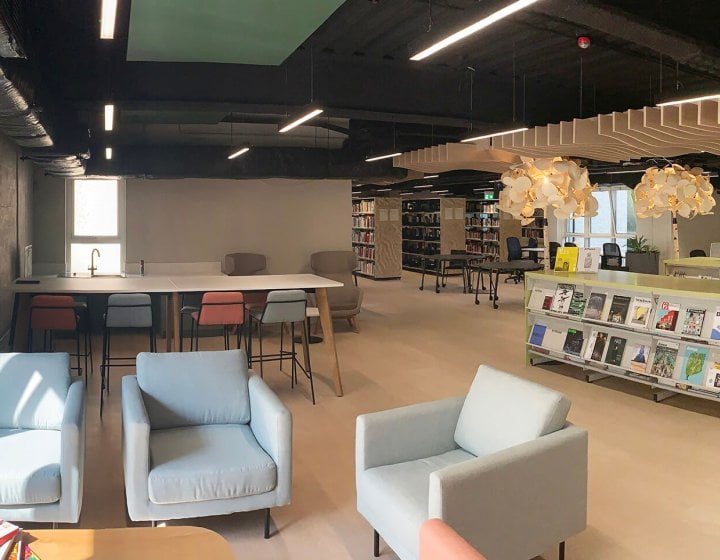
Library Facilities
Offering extensive collections, our two libraries provide a wealth of digital resources, magazines, ...

Sports Centre
Our Sports Centre, on Penryn Campus, includes a spacious gym with up to 90 of the latest, new statio...
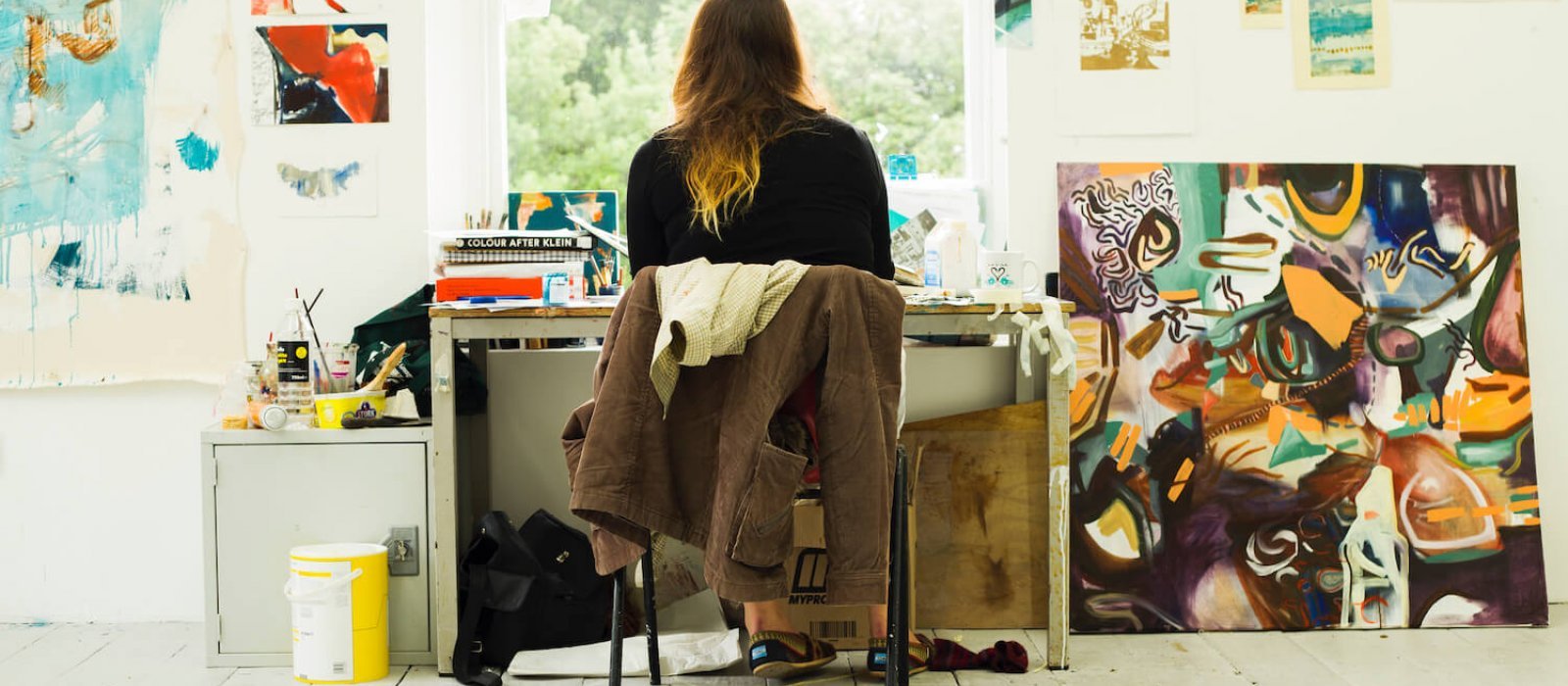
Staff
All staff are practising artists, working across a range of disciplines. Our visiting professors have included Elizabeth Price and Rory Pilgrim, and our speakers have included Zoe Williams, Phoebe Collings-James, Charlie Porter, Martin Clark and Richard Wentworth.
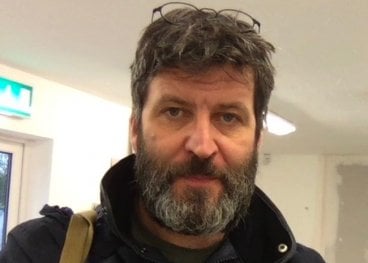
Jonty Lees
Course Leader BA(Hons) Fine Art
My research examines the Cornwall Schools Art Collection. The collection is important and culturally...

Dr Tom Baugh
Head of Art
Thomas is the Head of Art at Falmouth University. Thomas situates his artistic research ac...

Dr Neil Chapman
Senior Lecturer, Fine Art
Neil Chapman is an artist, writer and researcher. His current work explores material textual practic...
Dr Glad Fryer
Lecturer, Fine Art
My work takes an image on a journey beginning with a photographic source image and ending in a paint...
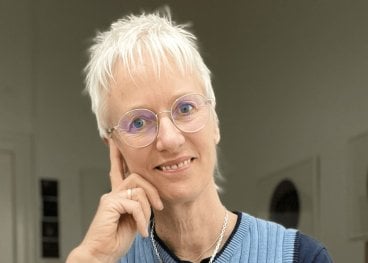
Lucy Willow
Senior Lecturer subject specialist in sculpture
I joined the BA Fine Art team in 2012 as senior lecturer with subject specialism in sculpture and am...
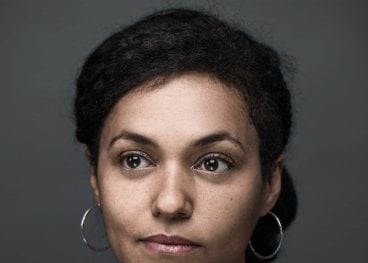
Maria Christoforidou
Lecturer
Maria Christoforidou is an artist, writer and researcher. Maria was born in Zambia, grew up in Greec...

Dr Laura Rosser
Senior Lecturer and 3rd Year Lead on BA Fine Art
Laura Rosser is a print-based artist researcher. She joined Falmouth University in 2021 and is a Sen...
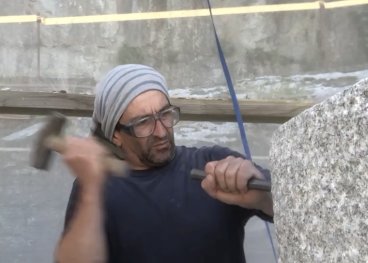
Dr David Paton
Senior Lecturer MA Fine Art and BA(Hons) Drawing
David is Senior Lecturer for MA Fine Art based at Woodlane Campus, and 1st Year Lead for BA(Hons) Dr...
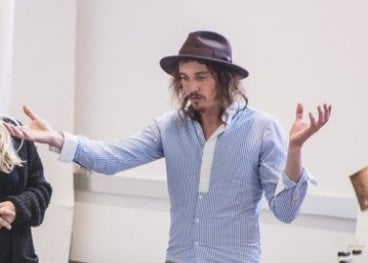
Oliver Thomas-Irvine
Associate Lecturer, Fine Art BA(Hons)
Amy and Oliver Thomas-Irvine’s work spans across sculpture, installation, performance, photography...
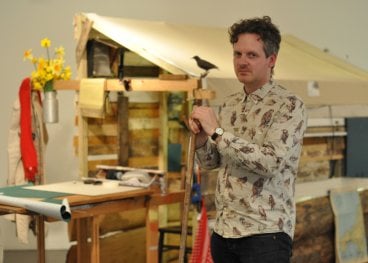
Dr Bram Arnold
Associate Lecturer, Fine Art BA(Hons)
Dr Bram Thomas Arnold is an artist who started with walking and kept going into performance, drawing...
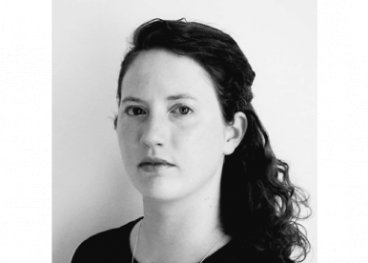
Elizabeth Tomos
Lecturer, Fine Art BA(Hons)
Elizabeth Tomos has been working in Higher Education since 2010 and is currently working as a Lectur...
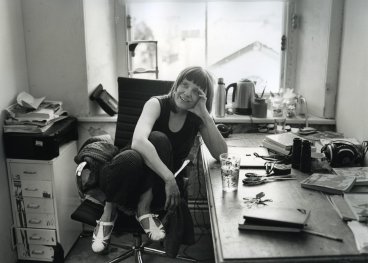
Bronwen Buckeridge
Senior Lecturer, Fine Art BA(Hons)
Bronwen Buckeridge works with field recordings, dialogue and text, paying attention to the non-human...
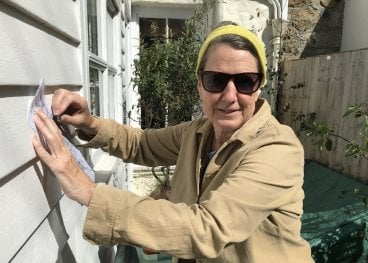
Jane Bailey
Lecturer, Fine Art BA(Hons)
Jane Bailey is an artist, researcher and educator with over 20 years’ experience. Employing partic...
Some members of staff only teach on specific modules, and your course might not feature every staff member who teaches on the course.

Got a question about this course?
If you want to know more about the course structure, our application requirements or what our graduates have gone on to achieve, our friendly course team is here to help.
Chat to Jonty
On this Fine Art degree, you'll have the opportunity to gain a BA(Hons) degree over three years or the option to study Fine Art BA(Hons) with Integrated Foundation Year and/or a professional placement.
On this studio-based Fine Art degree you'll delve into culture and theory, evolve your practice and gain vital professional skills. Learning from experienced practitioners, you'll investigate contemporary and historical art practices, theories and debates. You'll also develop the skills to effectively present your work to the world. Throughout the Fine Art degree, you'll collaborate with staff and peers to plan and deliver public exhibitions.
Careers
Our graduates have worked as:
- Internationally exhibiting artists shortlisted for the Turner Prize
- Exhibitors at Bischoff/Weiss
- A Cannes Film Festival prize-winning filmmaker
- A Creative Presenter at Ralph Lauren
What can you do with an art degree?
A drawing, art or design degree will teach you skills that are relevant for multiple industries so you can follow a career path that is truly fulfilling for a lifetime.
Explore career prospects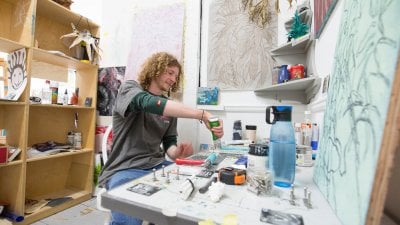
How to apply
Ready to apply for 2025?
You can apply for our undergraduate degrees via UCAS. You'll need our university UCAS code (F33) as well as your course code (which you'll find on your course page) for your application.
| Course route | UCAS code |
|---|---|
| Fine Art BA(Hons) three year degree | W100 |
| Fine Art BA(Hons) with Integrated Foundation Year | FY11 |
| Fine Art BA(Hons) with professional placement | PY19 |

Application advice & interview information
Go to ToolkitFor starting your studies in 2025
UK applications: 29 January 2025 (for equal consideration)
Applications after the 29 January will be considered on a first-come, first-served as long as there are places available. Apply for this course now.
International fee payers
International fee payers can apply throughout the year. But we recommend applying as early as possible, to make time for visa and travel arrangements.
We consider all applications on their own individual merit and potential. We invite all applicants to an interview day or audition to give them the opportunity to demonstrate this along with what inspires and motivates them in their field. Applicants will also be able to show their portfolio or give a performance depending on the course. We welcome applications from all subject backgrounds, whether you’ve specialised in STEM, the arts or humanities.
Course routes & entry requirements
BA/BSc(Hons) three year degree: 104 – 120 UCAS Tariff points
BA/BSc(Hons) four year degree with professional placement: 104 – 120 UCAS Tariff points
BA/BSc(Hons) four year degree with Integrated Foundation Year: 80 – 120 UCAS Tariff points
Check the title of your course to see if it's a BA or BSc award. UCAS Tariff points will primarily be from Level 3 qualifications such as but not limited to A-levels, T Levels, a BTEC/UAL Extended Diploma or a Foundation Diploma.
For applicants whose first language is English we require you to have or be working towards GCSE English Language Grade 4 (C), or equivalent.
If English is not your first language you will need to meet the same standard which is equivalent to the IELTS Academic 6.0 overall score, with at least 5.5 in Reading, Writing, Speaking and Listening. We accept a range of in country equivalencies and approved tests.
If you need a student visa to study in the UK, you may need to take a recognised language test. You can read our English Language Requirements for more information.
Fees, costs & funding
Tuition fees
| Annual tuition fee | Student |
|---|---|
| £9,535 per year | Full-time UK |
| £17,950 per year | Full-time EU/international |
| £1,905 per professional placement year | Full-time UK and EU/international |
| £9,535 per Integrated Foundation Year | Full-time UK |
| £17,950 per Integrated Foundation Year | Full-time EU/international |
| Annual tuition fee | Student |
|---|---|
| £9,250 per year | Full-time UK |
| £17,950 per year | Full-time EU/international |
| £1,850 per professional placement year | Full-time UK and EU/international |
| £9,250 per Integrated Foundation Year | Full-time UK |
| £17,950 per Integrated Foundation Year | Full-time EU/international |
Tuition fees for September 2026 will be confirmed in summer 2025.
Tuition fees are set annually and are subject to review each year. The University may therefore raise tuition fees in the second or subsequent years of a course, in line with inflation and/or the maximum permitted by law or Government policy. Students will be notified of any changes as soon as possible.
The figures above don't include accommodation and living costs
Typical course costs
- £380-£480 - Recurring annual costs
- £100-£400 - One off costs for the course duration
- £800 - Optional study visits and placements for the course duration
If you need to bring equipment or materials with you, these will be outlined in your Welcome Letter.
Additional typical course costs for Integrated Foundation Year pathway
- £250 for materials
- A laptop/desktop computer
- Adobe Creative Suite
To engage in the digital learning activity, although you will be able to access IT suites on campus, you will benefit from a laptop to access the platforms and tools we use. Depending on your subject, you may need a specific type of computer. If you're unsure about what you might need, please contact our course advisors.
Funding
For information about funding available, please visit our student funding pages.
Ask a student
What better way to find out about life at Falmouth University than by asking our current students?
From course details and academic support, to the social scene and settling in, our students are ready and available to answer any questions you might have. Simply set up your account, send them a question and they'll get back to you within 24 hours.
Similar courses
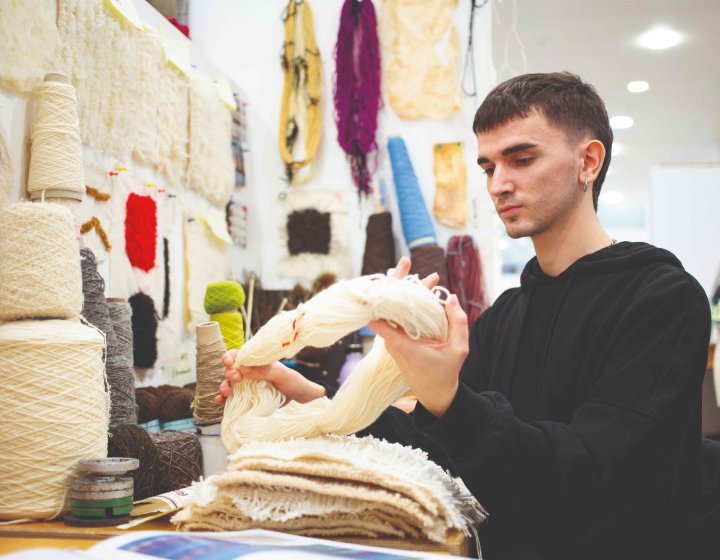
Textile Design BA(Hons)
On our textile design degree, you’ll be part of a vibrant, supportive community of multidisciplina...

Illustration BA(Hons) (Online)
Gain the professional practice and entrepreneurial skills needed to turn your talent into a successf...

Game Art BA(Hons)
Work in multi-skilled collaborative teams and graduate as a confident, industry-ready game artist. ...
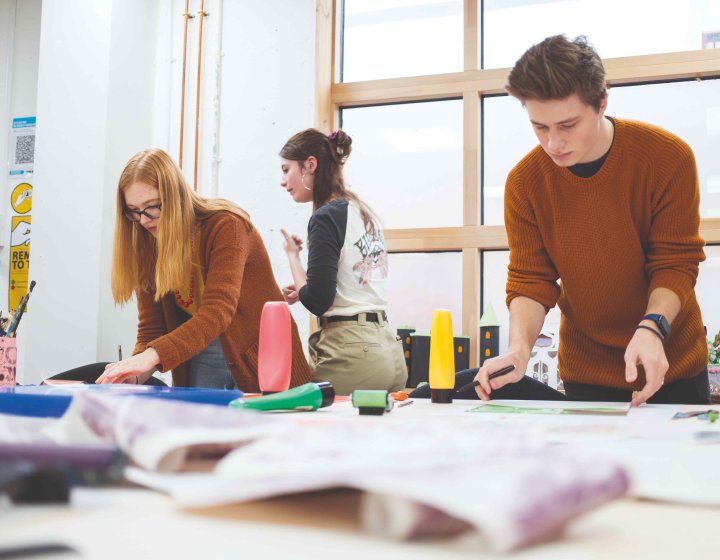
Illustration BA(Hons)
Become adept at problem solving and creating your visual language on this Illustration degree, renow...
Open Days and events
From visiting campus to online application advice, get all the information you need about joining our creative community.
Find an event
